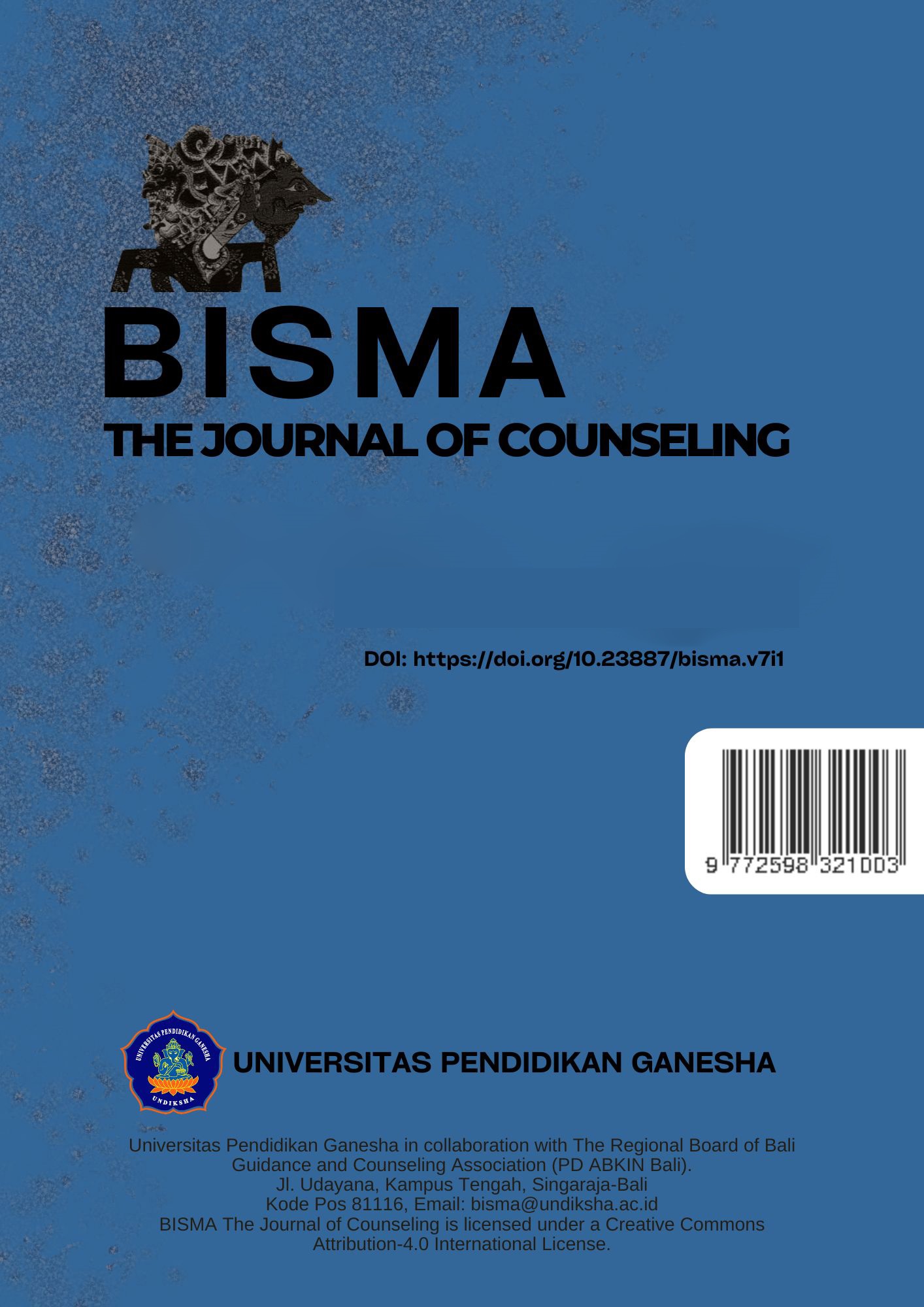The Effectiveness of CBT-Based Group Counseling in Reducing Worry Among Victims of Verbal Bullying
DOI:
https://doi.org/10.23887/bisma.v8i3.87717Kata Kunci:
Cognitive Behavior Therapy, Worry, Verbal BullyingAbstrak
Worry experienced by victims of verbal bullying can negatively impact their mental health, productivity, and ability to carry out daily activities. This study aims to analyze the differences in worry levels among victims of verbal bullying before and after participating in group counseling services based on Cognitive Behavioral Therapy (CBT). Additionally, the study seeks to examine the effectiveness of CBT-based group counseling in reducing worry among individuals who have experienced verbal bullying. This research employed a quantitative method with a one-group pretest-posttest experimental design, where only one group of participants served as the subject without a control group. Data were collected using a worry scale completed by participants before and after the intervention. Data analysis was conducted using parametric statistical tests to identify significant changes in worry levels. The findings revealed a significant reduction in the worry levels of verbal bullying victims after participating in CBT-based group counseling. These results suggest that CBT approaches in group counseling services are effective in helping victims manage their perceived worry. Based on these findings, CBT-based group counseling services can be recommended as a practical and effective intervention for addressing the psychological impact of verbal bullying. Further research is recommended to explore the application of CBT in more diverse groups to enhance the generalizability of the findings.
Diterbitkan
Terbitan
Bagian
Lisensi
Hak Cipta (c) 2024 Ledita Ezy Maulany, Zadrian Ardi

Artikel ini berlisensi Creative Commons Attribution 4.0 International License.








